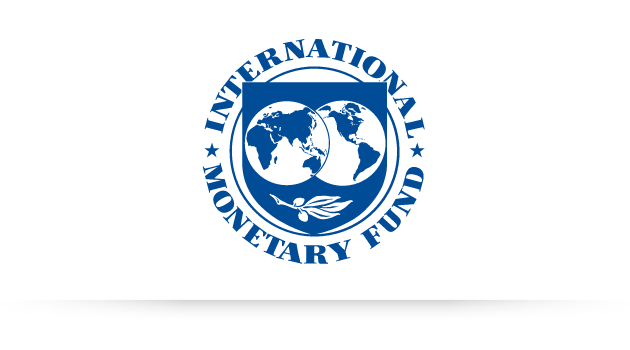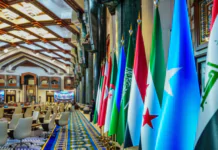A crew from the global monetary Fund (IMF) has concluded a go to with Iraqi officials, concluding:
financial challenges: Iraq faces a surprisingly unsure worldwide environment, declining oil expenses, and acute financing pressures, which are harming monetary activity and deepening current vulnerabilities.
urgent Measures needed:
incorporate the economic deficit by means of increasing non-oil tax sales and controlling the general public salary invoice.
entire the restructuring of country-owned banks.
promote personal area boom through labour market reform, improved commercial enterprise surroundings, better governance, and anti-corruption efforts.
important bank role: The valuable financial institution of Iraq (CBI) ought to retain:
Modernizing the banking gadget.
helping non-public banks in increasing correspondent banking relationships.
latest development: there was recent progress mentioned in economic area reforms, even though in addition steps are encouraged.
complete statement from the international monetary Fund:
An global monetary Fund (IMF) undertaking, led with the aid of Mr. Jean-Guillaume Poulain, met with the Iraqi government in Amman and Baghdad at some point of may additionally four-thirteen to conduct the 2025 Article IV consultation. the subsequent assertion become issued at the cease of the undertaking:
A incredibly unsure international surroundings, falling oil charges, and acute financing pressures, are taking a toll on monetary interest and exacerbating Iraq’s existing vulnerabilities, calling for pressing measures to keep economic and outside balance. those include containing the fiscal deficit by way of mobilizing non-oil tax revenues and reining inside the public wage bill, finishing the restructuring of nation-owned banks, and selling private quarter boom, by means of reforming the hard work market, enhancing the enterprise environment, enhancing governance and preventing corruption. building on current development, the relevant bank of Iraq (CBI) need to continue modernizing the banking system and supporting non-public banks in increasing their corresponding banking relationships.
current monetary traits, Outlook and risks
The non-oil sector grew at a slower tempo remaining year and inflation remained subdued. Following a completely sturdy increase of 13.eight percentage in 2023, Iraq’s non-oil GDP is anticipated to have substantially moderated to 2.5 percentage in 2024, driven by a slowdown in public funding and within the services quarter, as well as a weaker trade balance. The agriculture, production, and production sectors remained resilient, profiting from publish-drought restoration, elevated refining potential, and sturdy growth in credit to households. The decline in oil manufacturing weighed on common boom, which shriveled by using 2.3 percentage for the 12 months. Inflation dropped to two.7 percentage through quit-2024, amid decrease meals price inflation and liquidity absorption from the CBI.
The economic function has deteriorated, along with outside balances. The 2024 fiscal deficit is estimated at 4.2 percent of GDP, compared to at least one.1 percent in 2023, reflecting growing spending on wages and salaries and power purchases. Financing constraints have led to reemergence of arrears appreciably in power and capital expenditure. on the outside front, the present day account surplus narrowed sharply from 7.five percentage to two percentage of GDP, due to a surge in items imports. although, external buffers stay sturdy, with reserves at US$one hundred.3 billion at quit-2024-protecting over twelve months of imports.
Non-oil growth is projected to stay subdued in 2025 amid a tough global surroundings and financing constraints. Non-oil GDP is projected to sluggish right down to 1 percentage this 12 months because the impact of falling oil expenses and financing constraints weigh on authorities spending and customer sentiment. The cutting-edge account is predicted to weaken extensively in 2025 by and large because of declining oil export sales. The deterioration inside the external position is projected to weigh on overseas reserves.
policy Priorities
Iraq’s vulnerabilities have increased in current years due to a large fiscal expansion. Beside weighing on prospects of private region-led increase, current public employment regulations and ensuing salary costs are unsustainable given Iraq’s low non-oil tax base. hence, dependence on oil sales has worsened, and the oil charge required to stability the budget accelerated to around $eighty four in 2024, up from $fifty four in 2020.
those challenges have been exacerbated through the sharp decline in oil charges in 2025, requiring an urgent coverage response. inside the very short-term, the government must evaluation current and capital spending plans for 2025 and restriction or postpone all non-crucial expenditure. on the identical time, there may be scope to increase non-oil sales by way of revising customs duties as well as introducing or raising excise taxes. The authorities ought to also explore options to diversify the lenders base for increasing financing availability. monetary financing of the deficit must be prevented as it is able to fuel inflation, drain FX reserves, and weaken the CBI’s balance sheet.
extra extensively, a massive financial consolidation is wanted to mitigate macro-economic dangers, ensure debt sustainability, and rebuild financial buffers. on the sales facet, except customs responsibilities and excise taxes, there’s scope to gradually reform personal profits tax via proscribing exemptions and increasing rates. Strengthening tax management-via digitalization, advanced enforcement, and higher series-is critical. A more effective tax administration must permit for subsequently introducing a preferred sales tax. at the spending side, curbing cutting-edge expenses, in particular through comprehensive wage invoice reforms, restricting mandatory hiring, and adopting attrition rule, might yield enormous savings. recent efforts to higher goal the general public distribution machine are welcome, but there may be scope to in addition enhance targeting and in the end shift to cash-primarily based social safety nets. finally, it’s far urgent to reform the general public pension machine via elevating the retirement age and lowering each the accrual and replacement costs is needed to enhance its sustainability.
enforcing those reforms would also create fiscal space to growth capital spending. expanding non-oil investment, especially in change and transportation infrastructure should help economic diversification. giant investments are also required to modernize the strength zone and develop natural gas sources, each of which can be essential for improving power security and lowering dependence on fuel imports. stepped forward procurement, public monetary management, and corruption control would decorate the effectiveness of any extra public investment.
in addition efforts are needed to mop up extra liquidity with a view to enhance economic coverage transmission. while the CBI has made progress in soaking up extra liquidity, extra adjustments could beautify the effectiveness of the framework. Key measures consist of increasing the issuance of CB-payments, that specialize in the short adulthood (14-day) on the coverage price, revising length limits on man or woman banks’ bids, and improving liquidity forecasting tools and practices. To protect its stability sheet and hold credibility, the CBI should continue to avoid financing the authorities deficit.
The challenge commended the CBI for the a hit transition to the new alternate finance gadget. change finance is now fully processed by industrial banks through their correspondent banking relationships. This has additionally supported the recent decline in the unfold between the professional and parallel marketplace alternate fees. despite the fact that, in addition efforts are needed to in addition lessen the unfold, together with by means of implementing Iraqi dinar utilization for automobile and real property transactions, improving customs controls to shrink smuggling, and simplifying FX access.
while preliminary steps to reform kingdom-owned banks are encouraging, broader efforts are had to toughen the economic quarter. The restructuring plan for state-owned banks have to be finalized straight away, encompassing remedy of non-performing loans, and recapitalization wishes. In parallel, the mission welcomed development in digitalization and the government’ intention to undertake a comprehensive banking zone overhaul. Reforms need to encompass improving corporate governance, virtual infrastructure, and cybersecurity, whilst promoting a more potent function for non-public banks. Efforts to enhance AML/CFT measures by tackling the deficiencies recognized within the MENAFATF Mutual evaluation document should continue.
continual power shortages, electricity losses and excessive tariff subsidization retain to weigh at the financial system. Addressing inefficiencies in the electricity sector is important for fiscal sustainability and improving productiveness. In 2024, distribution losses reached 55 percentage, pushed by using robbery and unlawful connections, leading to considerable financial losses. The government are deploying clever meters and have introduced different measures to enhance billing and series. but, progress ought to be increased. once collection significantly improves, reaching cost restoration may even require strength tariff increases, with carefully calibrated subsidies centered to low-income users. latest disruptions in strength imports from Iran in addition underscore the need for different deliver and the improvement of gasoline projects.
preventing corruption and governance weaknesses is imperative to assist financial development. Steps taken inside the implementation and improve of the national anticorruption strategy and the upgrades in corruption perception indices are fantastic trends. but, corruption remains a considerable hurdle for increase. Strengthening duty frameworks for the operation of state-owned and private firms inside the oil, strength and production sectors is critical, and thorough compliance with Extractives Industries Transparency Initiative standards and the enactment of the regulation on Transparency and access to data must be prioritized. additionally, aligning anticorruption criminal frameworks with global covenants and first-rate practice, and strengthening the independence of the judiciary are important for powerful enforcement and for the safety of economic rights.
A complete structural reform time table is vital to unencumber growth potential. The challenge estimates that a comprehensive set of reforms protecting the hard work market, enterprise law, the economic sector and governance may want to double non-oil capacity GDP boom over the medium time period. On exertions marketplace, priorities consist of increasing labor pressure participation, in particular amongst ladies, by way of improving girl education and in addition decreasing limitations to their paintings and mobility, and reforming public zone hiring, which distort hard work markets and decrease productivity. Efforts to better align abilities with labor market wishes have to intensify. more normally, simplifying policies and lowering bureaucratic impediments in e.g. enterprise registration or tax administration ought to growth participation inside the formal economic system and help non-public sector development.
The task would love to thank the Iraqi government and numerous stakeholders for their awesome hospitality and cooperation and candid discussions at some point of the project.





